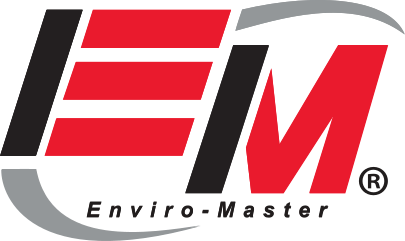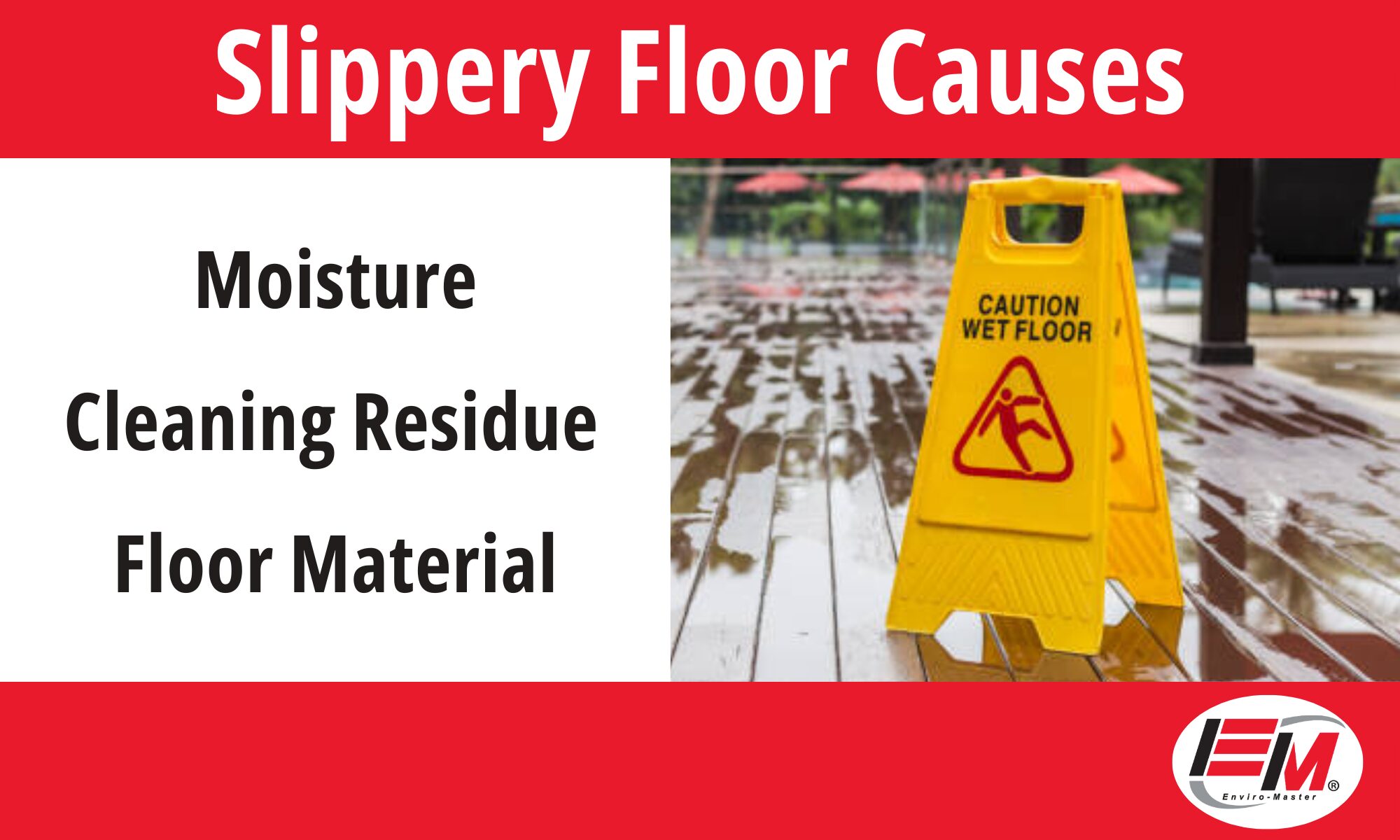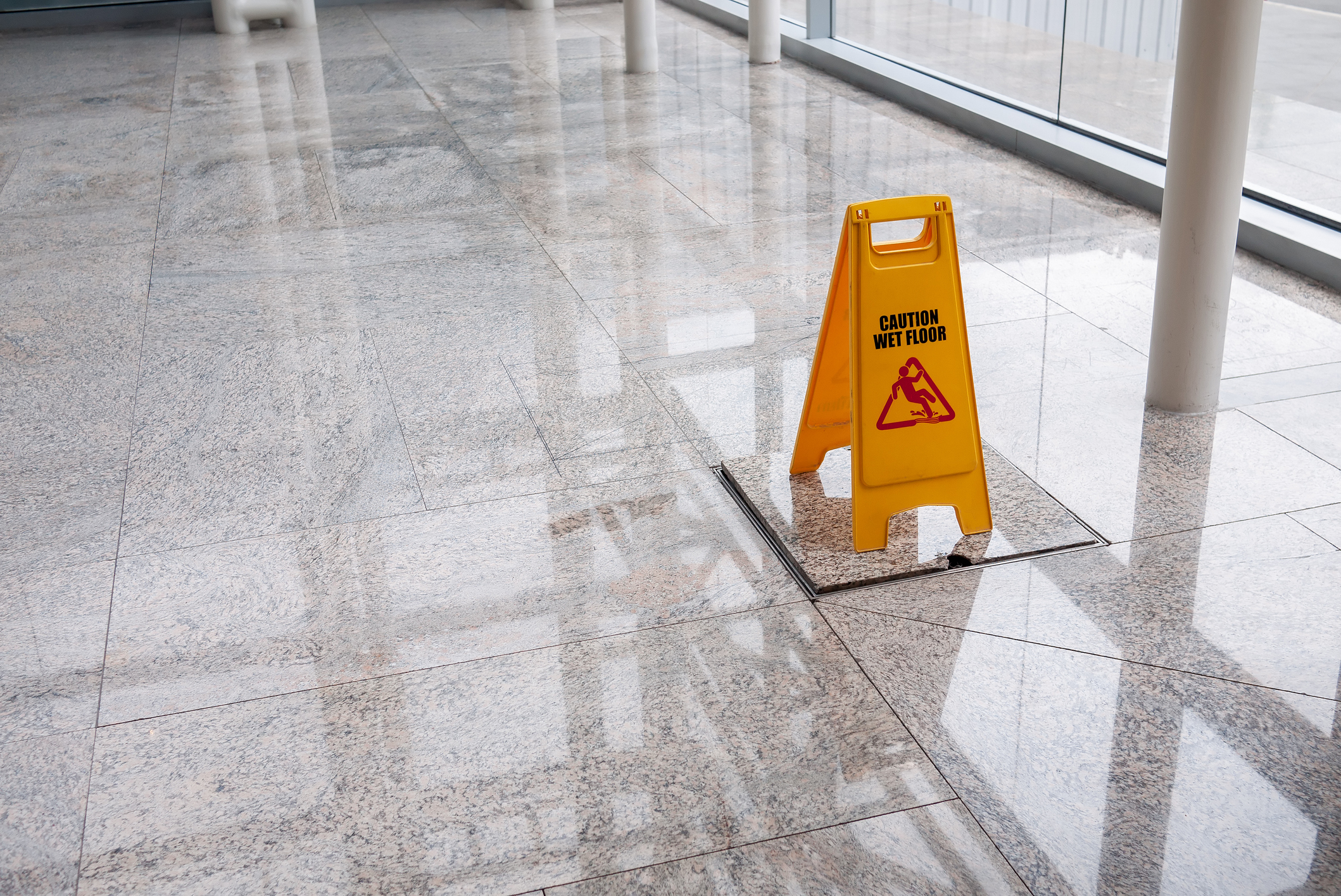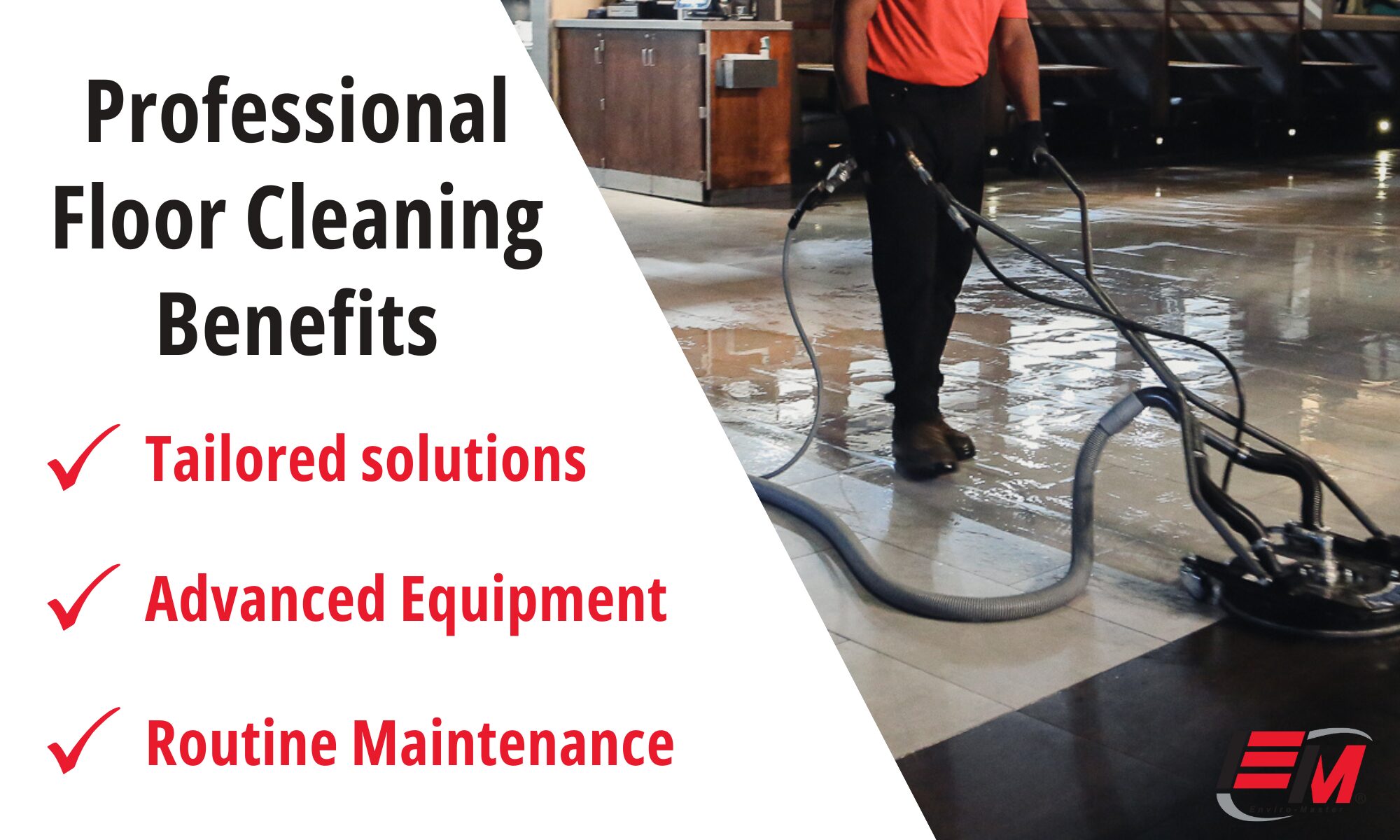In any business, maintaining a safe environment is critical for both employees and customers. Among the various hazards that can occur in commercial spaces, slippery floors are one of the leading causes of falls and injuries. In fact, slips and trips are a common problem that can result in legal issues, injury claims, and lost productivity. Preventing these accidents requires more than a simple floor cleaning— it involves understanding how to properly care for your floors to keep them dry, residue-free, and safe.
Slippery floors are caused by a variety of factors, including moisture, improper cleaning techniques, and the use of cleaning products that leave behind a residue. Even certain types of floor surfaces can pose a higher risk of slipping, particularly in high-traffic areas like hallways and lobbies. While some immediate and easy solutions, such as using rubber mats and carpet runners, long-term prevention requires regular maintenance, the right cleaning techniques, and, when needed, professional floor care services. This guide will discuss practical strategies for reducing floor slipperiness, improving safety, and creating a cleaner, more secure environment for your business.
Understanding the Causes of Slippery Floors
Before you can tackle the issue of slippery floors, it is essential to understand the root causes of this hazard. Floors can become slippery for many reasons, but some of the most common factors include moisture, improper cleaning practices, and the material of the floor itself.
Moisture and Wet Floors
Water is one of the leading contributors to slippery floors. Whether it’s from spills, mopping, or even humidity, moisture can turn an otherwise safe floor into a slip hazard. In commercial settings, wet floors are especially common in areas like kitchens, restrooms, and entrances. Ensuring that these areas are dried properly after cleaning or after any spill is crucial.
However, managing moisture is more than just addressing spills. During the winter, snow and rain can make their way into buildings, creating wet floors near entrances. Using absorbent mats, proper signage, and regular drying routines can help mitigate this risk.
Residue from Cleaning Products
Ironically, sometimes the products you use to clean your floors can contribute to the slipperiness. Many conventional floor cleaners contain ingredients that leave behind a thin, soap residue. Even though the floor may look clean, this residue can make it more slippery, especially in areas with smooth or polished surfaces like tile or marble floors. Selecting the right cleaning products that are designed for traction or are residue-free is essential for minimizing slip risks.
In addition to the type of cleaner, how you clean your floors is important. Using too much product, failing to rinse properly, or mopping in a way that spreads rather than lifts dirt and grime can all contribute to slippery surfaces.
Flooring Material
The material of the floor itself plays a significant role in slipperiness. Certain types of hard floors, such as tile, vinyl, and wood flooring, can be especially slippery when wet. Even smooth floors like polished concrete floors or marble can pose a risk, particularly in high-traffic areas.
To reduce these risks, it is important to understand the characteristics of your flooring material. Floors with a polished finish or smooth texture rather than a matte finish may require additional treatments to improve traction, especially in areas prone to moisture or spills.
Best Practices for Reducing Slippery Floors
Now that the primary causes of slippery floors are identified, let’s explore some best practices that businesses can adopt to reduce this hazard. The right combination of cleaning products, tools, and procedures will not only keep your floors looking their best but also ensure they remain safe.
Use the Right Cleaning Products
As mentioned earlier, not all cleaning products are created equal. Some cleaners, particularly those designed for heavy-duty commercial use, are formulated to cut through grease and grime without leaving behind a residue. This can be especially important in areas like kitchens or dining rooms, where food spills are common. Make sure to choose products that are designed for the specific material of your floor— what works for tile might not be suitable for hardwood.
For businesses that deal with high-traffic areas or floors that need frequent mopping, consider using a neutral pH cleaner, which helps lift dirt without leaving behind soap scum. Avoid oil-based or waxy cleaners on hard surfaces, as these can leave a slick residue that increases slip risks.
Keep Floors Dry
Drying floors after mopping or cleaning is an essential step in preventing slips. Use absorbent, microfiber mops that lift moisture effectively and leave floors drier. In areas prone to moisture— like restrooms or entryways— consider installing high-quality absorbent floor mats that will help soak up excess water. Be diligent about placing wet floor signs to alert people of potential hazards until the floors are completely dry.
During rainy or snowy seasons, businesses should be especially cautious about moisture being tracked indoors. Regularly drying the floors near entrances and adding an area rug can help keep these areas dry and safe.
Routine Floor Maintenance
Floor safety isn’t just about cleaning— it’s about maintaining your floors regularly. Over time, dirt and debris can accumulate, leading to a loss of floor grip. Regular sweeping and vacuuming will help keep floors free of dust and particles that could otherwise create a slippery surface.
In addition to cleaning, it’s important to inspect floors for damage. Cracks or uneven areas in porcelain tile or wooden floors can create additional hazards. Address any necessary repairs promptly to prevent these areas from becoming more dangerous over time.
Apply Anti-Slip Coatings
One of the most effective ways to reduce the slipperiness of floors is to apply anti-slip coatings. These treatments can be applied to a variety of surfaces, including tile, concrete, and even wood floors. Anti-slip coatings work by adding a subtle texture to the floor’s surface, creating better traction without significantly altering the appearance of the floor.
Anti-slip treatments come in different forms, such as clear coatings that can be applied with a mop or specialized anti-slip tile coating designed for high-moisture areas. They are ideal for locations like bathrooms, kitchens, and even outdoor walkways.
Clean Grout and Tile Thoroughly
Tile floors are particularly prone to becoming slippery if the grout lines are neglected. Over time, dirt and grime can build up in the grout, reducing the friction between the tile and the floor, and leading to a slippery surface. Regular deep cleaning of grout and tile is essential for maintaining traction.
Professional cleaning services can be especially useful for tile and grout maintenance, as they have access to equipment and cleaners that can more effectively break down dirt and grime. This helps prevent floors from becoming a slip hazard over time.
When to Call in Professional Help
While many businesses can manage their floor safety in-house, there are certain situations where professional floor cleaning services can make a big difference. For example, high-traffic areas, large facilities, or spaces with complex flooring materials can benefit from professional cleaning and treatments.
Professional floor care services have access to commercial-grade cleaning products that are designed to both clean and increase traction. They can also perform deep cleaning treatments that lift residue and dirt from grout lines and hard-to-reach areas. Professional cleaners can apply anti-slip coatings that offer long-lasting protection against slip hazards.
In addition to their cleaning expertise, professionals can assess your floors for any potential slip risks and recommend tailored solutions that fit the needs of your facility. Investing in routine professional cleaning and maintenance can ensure your floors are consistently clean, safe, and free of hazards.
How Enviro-Master Can Help
Reducing slippery floors requires more than just routine cleaning. It involves understanding the causes of slip risks— such as moisture, residue, and flooring material— and addressing them through the right products, techniques, and preventative measures.
For businesses looking to take their floor safety to the next level, professional cleaning services provide a comprehensive approach. Enviro-Master’s Micromax Floor Cleaning Service and Tile and Grout Deep Cleaning Service offer solutions specifically designed to clean floors deeply, reduce residues, and enhance safety. These services ensure that your floors are not only spotless but also safer for employees and customers.
Contact Enviro-Master today to learn more about how professional cleaning services can help reduce slip hazards and maintain a safer business environment.





